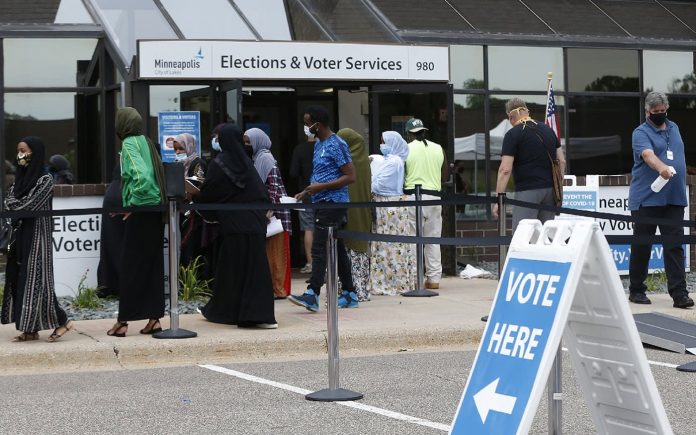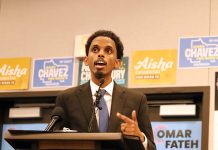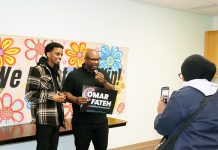

New Analysis
The power structure and its allies (like the mainstream press) should stop trying to confuse the issue
The mainstream press purportedly has been attempting to bring clarity to the proposed charter amendment put to Minneapolis voters on the election ballot as a way of fixing the problem of police and public safety. However, it seems their efforts at “clarity” have added still more confusion to the effort.
The measure was organized by YES Minneapolis and supported by the Minneapolis City Council. It proposes to address the issue of police misconduct by reorganizing the structure of the MPD and create in its place “a Department of Public Safety that employs a comprehensive public health approach purpose of the city’s police department.”
The Minneapolis Star Tribune in particular appears to be in opposition to the measure while not directly saying so. The Strib has also spent lots of ink either unintentionally or intentionally obscuring the community’s concerns around police misconduct.
Such misconduct—witnessed worldwide in George Floyd’s murder—is, after all, what the amendment was proposed to address.
Before voters could go to the polls and decide for themselves, the Minneapolis Star Tribune declared in so many words that people are on the whole opposed to the charter amendment. At least that is what can be inferred from the lead in a story that ran in Sunday’s paper titled, “Minnesota Poll: Most Minneapolis voters want reform, not fewer cops.”
“Through its editorial board and narrative slant, I think the Star Tribune coverage has been biased against the people’s vote on the public safety,” said Minneapolis filmmaker, artist, storyteller D.A. Bullock. “From that shameless PR piece they featured on Judge Anderson—front page above the fold—to their generous coverage of Don and Sondra Samuels as the ‘trusted voice’ and de facto proxy for Black people in Minneapolis, they have avoided the scrutiny that is the benchmark of the fourth estate.”
According to the lede in writer Kelly Smith’s story, which was supposedly based on a poll of Minneapolis citizens, “a clear majority of Minneapolis voters oppose reducing the size of the city’s police force, and that feeling is especially strong among Black voters.”
“They are putting on a full-court last-minute press trying to influence the outcome through what is presented as a neutral and objective poll,” said one observer and Minneapolis resident who wanted his name withheld, when asked his thoughts on the article. “It’s like saying, hey, most of your fellow citizens are on the side of a no vote, so you should be too. It’s a scare tactic to steer people away from the public health approach.”
The poll, which took into account the opinions of 800 Minneapolis residents, was conducted by Mason-Dixon Polling & Strategy Inc. of Jacksonville, Fla, and paid for by a combination of news agencies including KARE 11, MPR News, Star Tribune, and PBS’s FRONTLINE. But the poll raises a big question: Why feature so prominently at the top of Sunday’s front page a survey of 800 prospective voters just as the people are preparing to vote if not to influence the outcome of that vote?
“A poll is only as good as the questions asked and the context of the reporting on the opinion thereafter. In terms of policy, I’m not so much interested in the percent of opinion, but knowing why folks hold an opinion. Are they believing lies? Do they know the facts? Have they been frightened into decisions (fear is a form of coercion),” observed Bullock.
Smith did not reiterate the facts that the proposed charter amendment allows for a police force and does not call for abolishing the police. Nor does it call for defunding the police.
The article appears to have pulled away the veneer of objectivity that has been loudly and repetitively claimed by the Star Tribune. Recently in a note to readers, Star Tribune Editor and Senior Vice President Rene Sanchez wrote that his department and the editorial board—which is apparently opposed to the ballot proposal—“have no connection to, or advance awareness of, our news coverage.”
“This separation is strict and complete,” he wrote. “In the newsroom, we are firmly committed to bringing you fair, complete coverage of the campaigns that’s grounded in fact, not opinion… But we know that it can be confusing at times to some readers.”
Opponents, including Minnesota governor Tim Walz and U.S. Senator Amy Klobuchar, have tried to paint the amendment as a referendum on defunding the police. The move is disingenuous at best; at worst they would have us believe that their reading comprehension skills are not what someone in elected office ought to have.
Minneapolis Mayor Jacob Frey revealed yet again his opposition to the proposed amendment when he tweeted his support for the article on Sunday, which raised suspicions among some on social media about collusion between him and the Star Tribune. Frey in his tweet also insisted that a Department of Safety could be created without charter change, which generated mockery by some. Javier Morillo, for example, noted that the mayor has gone from “the guy who spent a year and a half opposing the creation of a Department of Safety to the guy saying we can do it without a charter change!”
“The poll fills in a blank, not because it is the right answer, but because there was blank space there. Black people’s views on police are far more complex than one question in a poll. But politicians will use this to their own benefit. They don’t really care about the well-being of Black people” said Bullock.
“Don’t let anyone convince you that Black people love to be over-policed and under-protected.”
About Mel Reeves
Mel Reeves is the community editor at the Minnesota Spokesman Recorder (MSR). Established in 1934, MSR is the oldest Black-owned newspaper in the state of Minnesota.










